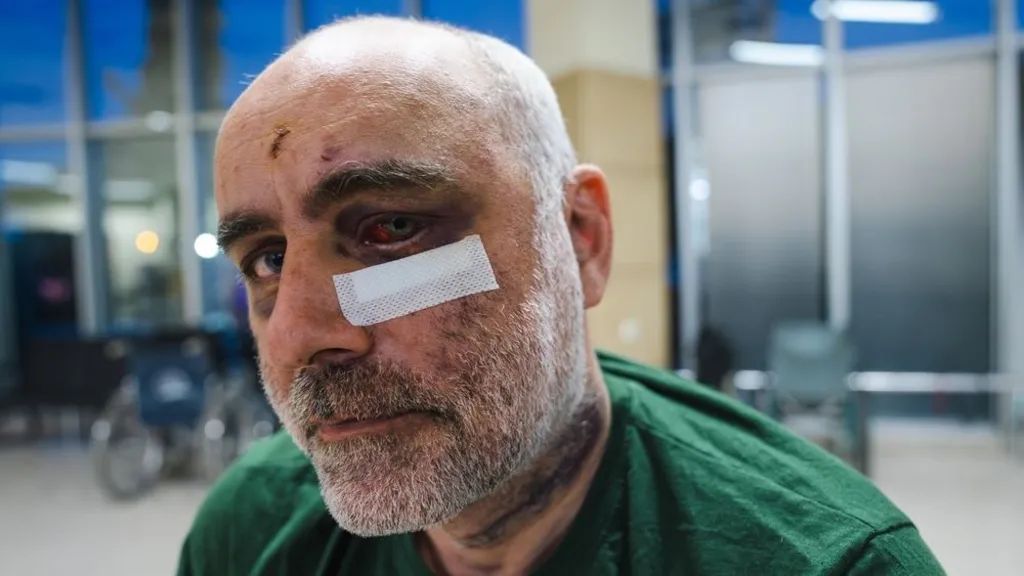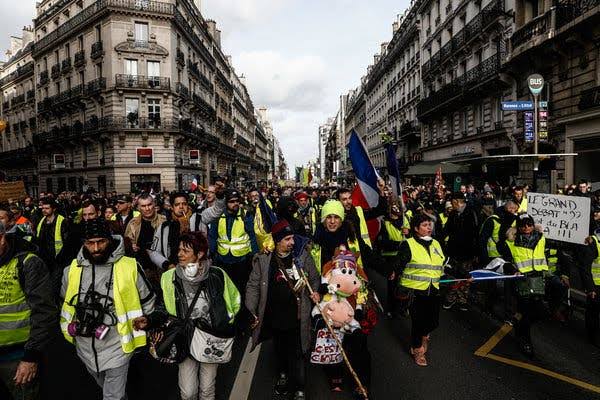Georgia is in trouble.
After years of something close to calm, this small, stunningly beautiful country, sandwiched between the pale beaches of the Black Sea and the snow-dusted Caucasus mountains, is facing a fork in the road – and with it the risk that it may slide back to political instability or even towards the sort of chaos that scarred its early decades of post-Soviet independence.
At stake is Georgia’s future path. Will this strategically vital nation, with its ports and pipelines, continue to follow in the footsteps of the Baltic states and move towards full membership of both Nato and the European Union?
Or might political turmoil, rigged elections, and the barely hidden hand of Russia, bring Georgia back into Moscow’s authoritarian orbit, like Belarus?

Spurring events here are two key factors: Russia’s invasion of Ukraine, and the anti-Western, populist and nationalist rhetoric that has proved so effective, and so politically polarising, in parts of eastern Europe and beyond.
Already, Georgia – a nation bound together by a rich history and culture, and by a deep desire to strengthen ties with Europe, grow its economy and avoid a return to the separatist wars and conflicts of the 1990s – is finding itself unexpectedly divided in sharp new ways.
On one side of that divide stands a huge street protest movement, increasingly dominated by young Georgians and marked by a youthful exuberance that has ranged from mocking memes about the prime minister’s haircut to energetic dancing to the sight of highly organised medical students preparing to respond to those injured in new clashes with the police.
Georgia’s youth, vocal in their desire to join the EU and radicalised by events in Ukraine, have given new momentum to opposition parties in protesting against a new and deeply controversial law.
The law was passed by parliament, then vetoed by the president, but is expected to be come into force soon regardless.
It mirrors a similar one introduced in Russia and appears designed to demonise many civil society groups as “foreign agents.”
As currently written, the law would almost certainly also scupper Georgia’s stated goal of EU membership.
“It kills Georgia’s European future,” warned Salome Samadashvili, an opposition MP and former ambassador to the EU.
“That’s why this is the most important moment in Georgia’s modern history. If, at the next elections, we manage to get rid of this government and we build a strong pro-European coalition, then Georgia can move forwards and I think our future can be irreversible,” she said.

But October’s elections seem a long way off right now, amid widespread fears of more violent confrontations on the streets of the capital, Tbilisi.
“We see that our government escalates this situation. I think the aim is to initiate civil confrontation. If we lose, then we lose our country, our freedom, our independence. We become part of Russia,” said David Katsarava, a well-known activist still in hospital recovering from concussion and other injuries after being assaulted by police at a protest rally earlier this week.
Mr Katsarava’s eye socket was fractured and there are dark strangulations marks around his neck. Other activists and opposition politicians report being targets of violence, abusive phone calls, threats, and intimidation.


